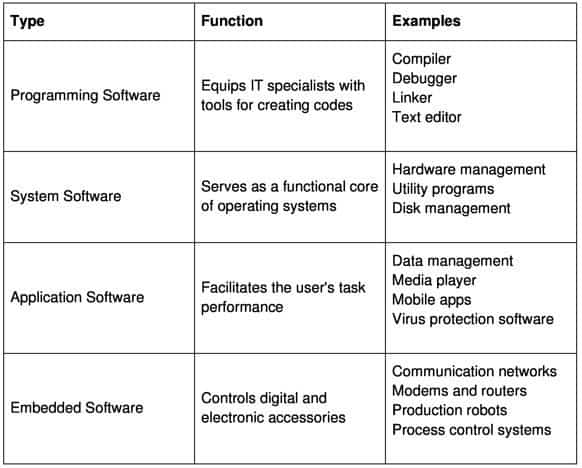[ad_1]
Featured image by T.TATSU
Can someone be a single parent and successfully own and run a small business? The answer is yes, no matter how difficult it might seem. With the proper time management and resources, it is possible for single parents to own a successful small business while also being a good parent.
But being a single parent is no easy task. Holding the responsibility of raising and caring for a child by yourself can be difficult. At times, it may seem impossible. Children take a lot of effort and energy.
RELATED ARTICLE: 5 HOME-BASED BUSINESS IDEAS THAT GENERATE GOOD REVENUE
As if that weren’t enough, life as the sole provider can be made even harder by a number of things. For example, single-parent car insurance costs more than coverage for married couples. Add to the mix that you’re the owner of a small business and it can seem as if a single parent just can’t win.
Owning a business is time-consuming and challenging. When you’re the sole owner of a small business, everything in the business falls on you. And if you’re also a single parent you’re getting a double dose of daily tasks that cannot be ignored or put off to another day.
Combining the two can seem like an impossible task. Can someone be a single parent and own a small business? Is it possible to properly care for a child while keeping your company afloat?
The answer is yes, no matter how difficult it may seem. With the proper time management and resources, it is possible for single parents to keep up with their small businesses.

Stick to a Schedule for Business and Parenting Life
Naturally, your business—especially if you own a brick-and-mortar location—has set hours. Or, if you work out of your home, you may have specific hours you prefer to work. While this on its own is a schedule, it never seems to be so simple for a small business owner.
RELATED ARTICLE: ATTRACTING CUSTOMERS TO YOUR BRICK-AND-MORTAR STORE
Most people who work for a company leave work and clock out at the end of the day. But a small-business owner’s day isn’t necessarily done just because their business is closed for the day. Some products may be running low, meaning you need to go to the store and buy more. You may need to do paperwork or finish orders you didn’t have time for earlier.
There are countless reasons a small-business owner’s day doesn’t end with simply clocking out. But when you are also a single parent, there are many moments when your child will also require more of your time than you might be able to give. Children get sick. They have needs. And sometimes they just deserve some quality time.
Finding a schedule that you can stick to is an essential aspect of ensuring that your are properly caring for your child while also successfully running your business. Though life can be unpredictable at times, it’s important to keep to some sort of schedule.
Perhaps you choose one day of the week to go shopping and stock up on products. On that day, you grab everything you know you need for the rest of the week. This can eliminate the need to make random store runs since you will be stocked with everything you need.
In short, creating a plan and following a schedule is your key to success. This will ensure that you are doing everything possible to keep your business running smoothly while also spending quality time with your children.
RELATED ARTICLE: HOW SMALL BUSINESSES ARE PREPARING TO COPE WITH RISING INFLATION
Build a Support System for Your Business and Children
Having support from people you trust is an essential part of successfully owning a small business while balancing being a single parent. Knowing there are people you can count on in case of emergency is a massive weight off your shoulders.
Life can be unpredictable, and you don’t ever truly know what will happen. You may suddenly need to pick a child up from school. This could force you to close down your business so you can retrieve your child.
But having reliable relationships can prevent you from constantly having to choose between your family and your business. This is especially the case if someone in your household has non-owner car insurance. Then, that person can use your vehicle to pick up your child. This allows you to keep your business open and running without sacrificing your child’s well-being.
RELATED ARTICLE: A GUIDE TO INVESTING IN YOUR BUSINESS
Having a support system makes all the difference for single parents. It can seem impossible to run a business while caring for a child on your own, and that’s because sometimes it truly is. But having stable and reliable support in your life can make a huge difference.

Create a Business and Parenting Life Balance
Creating a balance between the portions of your life is the only way to ensure your business continues running efficiently while your child is adequately cared for. At times, this might even mean combining the two. If there are errands you need to run for your business, bring your child along. Then take them somewhere fun when you are done or treat them to their favorite meal.
You might feel like your child will be bored, but truly the experience is all that you make it. Create a game your child can play in the car between stops, or have them help you pick certain things out at the store. If you make it a fun time, your child will follow suit. This allows you to keep up with your business needs without sacrificing time with your child.
You can also bring your child into your business life, including them in little things around your work or assigning them small tasks to complete. You may even be surprised at how much they enjoy their time with you. Even better, you might even receive a heartfelt thanks when they’re older. Perhaps they will recount to you the fond memories they have of helping you keep your business running.
Don’t Sacrifice Either Your Business or Your Parenting Time
As overwhelming as it may seem, it is possible to be a successful small business owner while also being a good single parent. Though both jobs require massive amounts of attention, time, and energy, they can be done together, and done well.
Some days may be more difficult than others, but it’s important to remember what you are working so hard for—a business you’re passionate about balanced with quality time with your children.
Though everyone’s lives and needs are different, taking a few tips from this list and finding a way to work them into your own life may help keep you keep up with your small business without sacrificing your family’s needs.
About the Author

Alexandra Arcand writes and researches for the auto insurance comparison site AutoInsuranceEZ.com. She was raised by a single parent who owns a small business. She knows first-hand what it takes to keep a business running while balancing the rearing of a child.
RELATED ARTICLE: HOW TO GROW YOUR NEW BUSINESS INTO A SUCCESSFUL BRAND
[ad_2]
Source link










